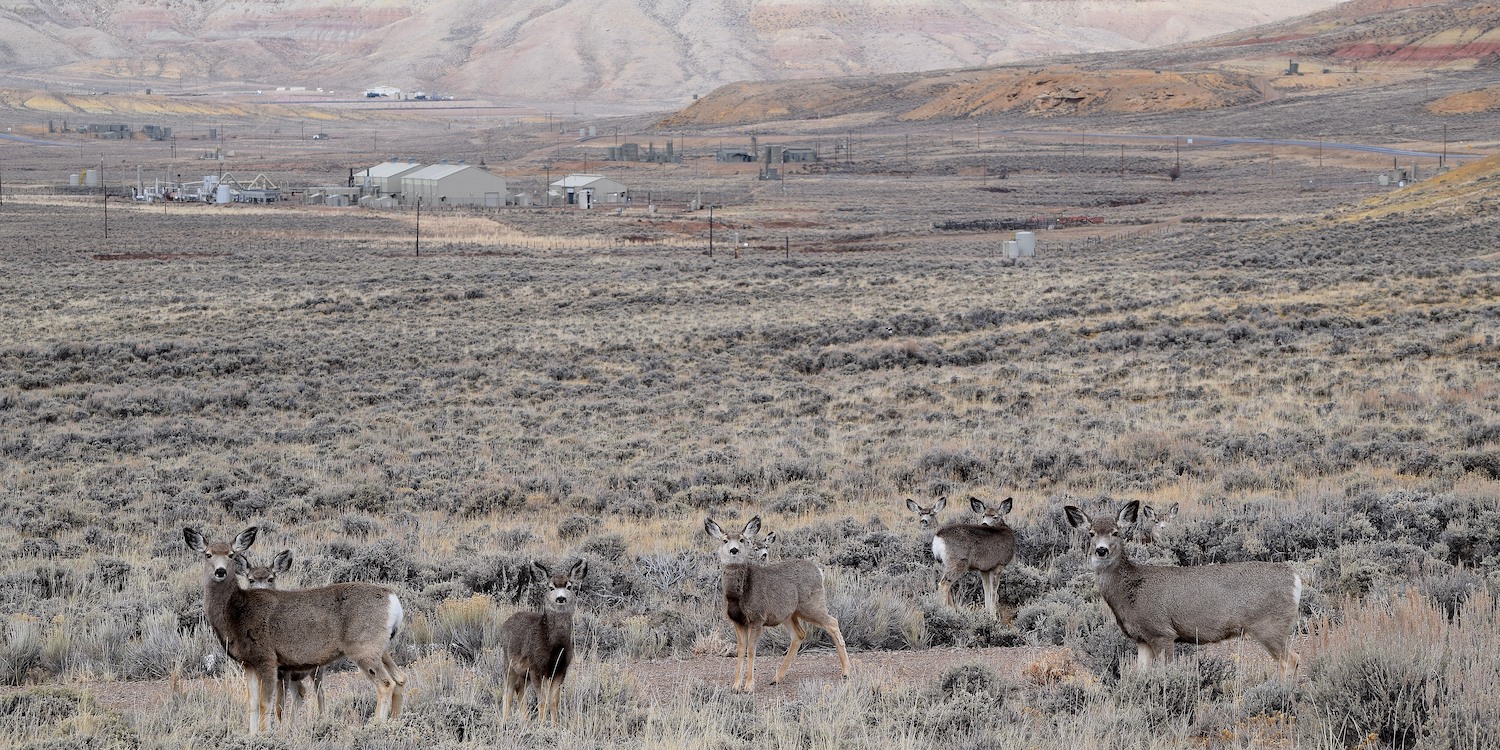In late December, Gov. Mark Gordon released a draft executive order that would dictate how Wyoming designates and manages big game migration corridors.
While the draft is an important first step and brings us closer to a long-awaited solution, it still needs revision to ensure it will include the kind of protections our migrating herds require. We’ve asked the governor to include strong, clear language protecting the most critical corridor habitat — stopover and high use corridor segments — from risky development plans, and underscore the authority of the Game and Fish Department to manage all wildlife based on science, not politics. We’ve also provided many suggestions intended to help make the implementation of the order both efficient and effective in conserving corridor habitats.
Together with several partners, we submitted comments to the governor’s office on how the final version of the executive order could be strengthened. Other conservation groups are weighing in as well, and nearly 300 Wyomingites signed a citizen’s letter thanking Gov. Gordon for his leadership and asking for strong language protecting wildlife.
YOUR OPINION MATTERS
There are still opportunities for you to speak up, too. The governor’s office recently announced a four-stop “listening tour” on Saturday, February 1, to discuss the executive order and answer your questions.
- RAWLINS | 7:30–8:30 a.m. | Carbon County Higher Ed. Center, 1650 Harshman St.
- PINEDALE | 10–11 a.m. | Sublette BOCES, 665 N. Tyler Ave.
- KEMMERER | 12:30–1:30 p.m. | Kemmerer Event Center, 215 Wyoming Hwy 233
- ROCK SPRINGS | 3:15–4:15 p.m. | White Mountain Library, 2935 Sweetwater Dr.
If you get an opportunity to attend and voice your thoughts, we hope you’ll share the following:
- Thank the governor for taking important steps to protect migration corridors. Gov. Gordon’s forthcoming executive order will mark an important step forward, and his staff and the citizens who advised him worked hard to find balance and protect critical habitat while also allowing for responsibly-sited industrial development.
- Express the value of big game herds and the importance of protecting their habitat. Share why you personally value your local big game herds, and what value they bring to your community. Emphasize the world-class quality of our wildlife, and the importance of conserving it for future generations.
- Emphasize that Wyoming people and science are in agreement: We can protect critical habitat while also developing energy resources. Gov. Gordon’s executive order will allow us to make smart decisions about where to site industrial infrastructure. By prioritizing the siting of infrastructure outside these narrow and vital corridors, we can ensure that animals can move between winter and summer range and that we protect critical habitat without diminishing the energy economy.
WHAT’S AT STAKE
Research has shown us that migrating mule deer follow the same route each year, and pass on this migration knowledge from mother to fawn. Research has also shown that human development along these routes can cause disruptions, particularly at stopover points where animals pause to rest, eat, and gain strength for their long journey. Over the past three decades, we’ve seen mule deer populations decline in Wyoming by more than 30 percent, and failure to preserve the migration corridors that mule deer and other ungulates depend on as a seasonal lifeline would have lasting effects on these species.
The future of our wildlife depends on our actions today. It’s vital that we keep working together to help establish meaningful protections for corridor habitat, because we only have one chance to get this right. That’s why we’ll keep engaging with the governor’s office until we’re satisfied the executive order offers adequate corridor protections. And we’ll fight a misguided effort in the Wyoming Legislature to undermine the entire process.
LEGISLATIVE OVERREACH INTO WILDLIFE HABITAT
House Bill 29, brought by the Select Federal Natural Resource Management committee, would sacrifice corridor habitat for oil and gas development, strip Game and Fish of the ability to responsibly manage big game based on science, and torpedo extensive collaborative work by stakeholders — the energy industry included.
The bill would give county commissioners, who have no authority over wildlife or the appropriate scientific expertise, the responsibility of creating migration corridor working groups. The groups would be required to consult with the Office of State Lands and Investments, the Oil and Gas Conservation Commission, and the Department of Revenue, among other agencies, but not the Game and Fish Department. The biologists and other experts who are responsible for managing our wildlife would be completely removed from the equation to create a process more friendly to oil and gas. Local working groups would even be empowered to amend the scientifically-defined boundaries of wildlife corridors!
If HB 29 is passed, not only will it undermine all the good faith work that stakeholders have invested in the governor’s executive order process, it will also virtually guarantee that no migration corridor can be designated in the future. That’s why we’ll be working hard during this year’s legislative session to defeat this toxic bill. And we need your help!
CONCERNED ABOUT THE BILL? HERE’S WHAT YOU CAN DO:
Attend one of our upcoming Beers & Bills events to learn more about this bill and other conservation legislation as we approach the Legislature’s 2020 budget session.
Sign up for our email alerts to receive updates on this and other key conservation issues in Wyoming, and to learn how and when you can take action.


